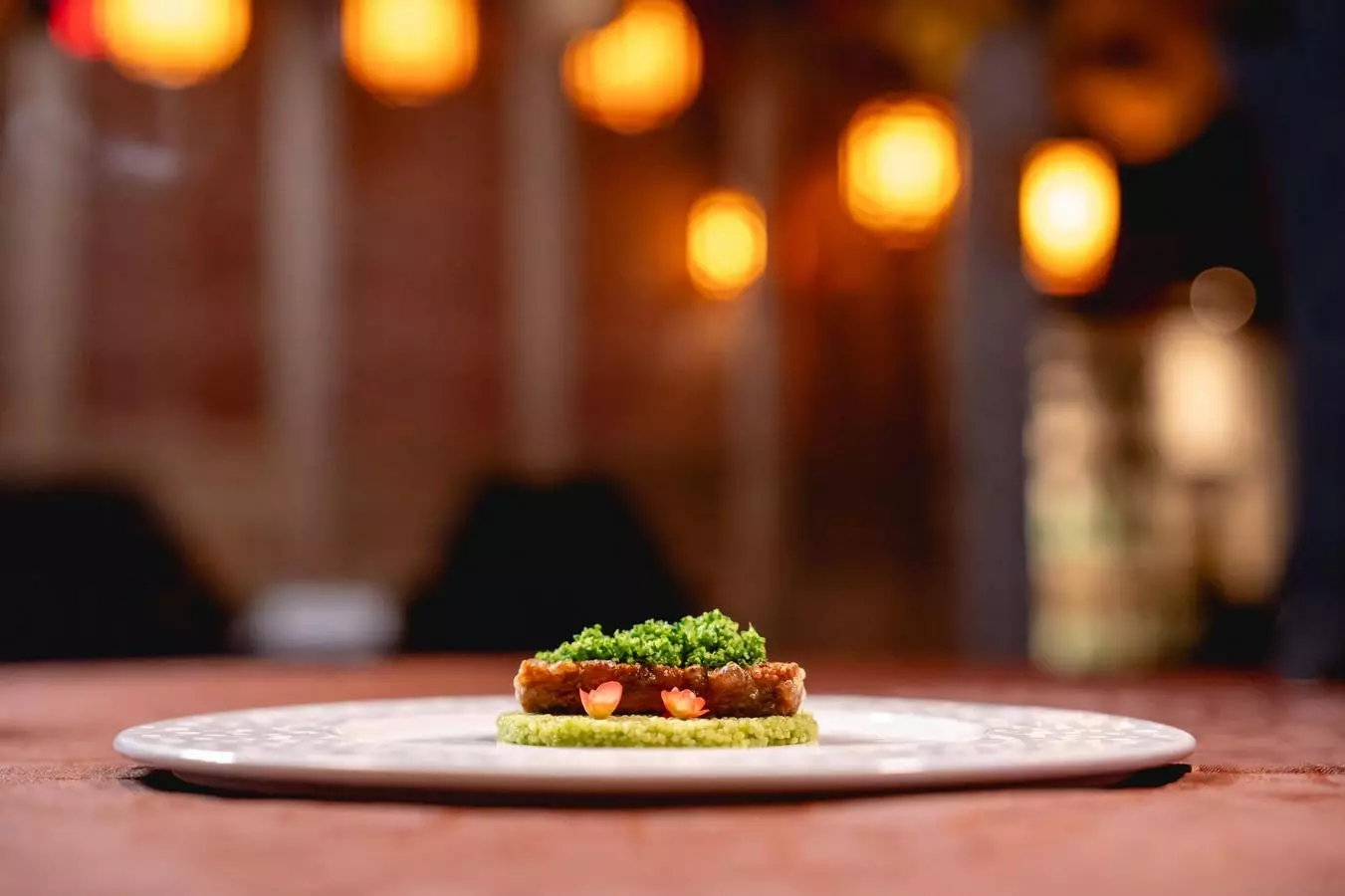In an era where culinary innovation and health consciousness are key, a landmark restaurant has emerged in Manhattan that marries luxury with a sophisticated plant-based menu. Known as Bodai, this exquisite dining establishment opened its doors on October 15, featuring a multicourse vegetarian menu crafted by the celebrated Master Chef Guo Wenjun. Tucked away on the ground floor of The Randolph House luxury residences and discreetly accessed via a doorbell, Bodai represents an exclusive culinary experience reminiscent of the grandeur of ancient Chinese culinary arts.
The menu at Bodai is rooted in ancestral recipes of Qing Palace Cuisine, a style of vegetarian food that has largely been overlooked in contemporary dining. With a condensed nine-course tasting menu priced at $99 per person, Bodai provides diners with a more accessible yet equally lavish experience compared to the fine-dining institution next door, Chef Guo, which offers an intricate 19-course prix-fixe for upwards of $518. This thoughtful pricing approach reflects a strategic vision that caters to a growing audience seeking luxurious yet health-conscious dining options.
Master Chef Guo has meticulously curated each dish over the past two years, a process influenced heavily by the teachings of his mentor, Chinese Master Chef Ding Guangzhou. As a seventh-generation disciple of royal culinary traditions, Ding’s teachings have allowed Chef Guo to blend historical wisdom with modern sensibilities, creating a menu that respects the past while embracing contemporary palate preferences. Chef Guo aims to elevate vegetarian cuisine, honoring its roots while simultaneously appealing to diners desiring healthier lifestyles.
When patrons arrive at Bodai, they are greeted by an overflowing sensory tapestry. The experience begins with the presentation of a menu scroll, beautifully written in both Chinese and English, accompanied by the serene sounds of traditional Guqin music. This attention to detail cultivates an immersive environment, setting the tone for the exquisite culinary journey to come.
Upon selecting a complimentary tea—choices ranging from hibiscus to five black—the real adventure begins. The first course, aptly titled The Life of Enlightenment, symbolizes the five central flavors in Chinese cuisine and their emotional resonance. Each culinary creation that follows is not merely a dish but a narrative, skillfully articulated by staff as they present the food to enthralled guests. This storytelling aspect transforms a meal into a holistic experience that nourishes not only the body but also the spirit.
Among the standout dishes is the Bodai Buddha Jumps Over the Wall, which famously incorporates an intricate medley of 21 vegetables, slow-cooked for nine hours, resulting in a robust broth enriched by nine varieties of mushrooms. Each bite offers a taste of carefully cultivated flavors and an homage to traditional cooking techniques that withstand the test of time.
The thoughtfully composed menu features imaginative twists on classic dishes, such as the Sweet and Sour Vegetarian Riblets—an artistic reinterpretation of Imperial Palace Cuisine adapted for vegetarian preferences. Other notable offerings include Pan-seared Boletus paired with organic Green Millet rice and Nepal mushroom served with crispy quinoa in a charred chili pepper sauce.
This exceptional balance of creativity and tradition culminates in dessert. The nectar of the Gods—served in an eggshell—delivers a surprise with its delicate combination of yellow peaches, papayas, and silver snow swallow that whimsically resembles an egg yolk while providing a burst of sweetness.
Chef Guo’s ambition transcends just exquisite dining. There is a palpable commitment to health-conscious culinary practices, emphasized throughout the entire dining experience. Guests are encouraged to enjoy a cooking approach characterized by low oil, low sugar, low fat, and low salt, while still incorporating high fiber ingredients and eschewing additives. Such mindful dining reflects an understanding of contemporary concerns surrounding health and wellness, positioning Bodai not merely as a restaurant, but as a beacon of responsible and gratifying culinary experiences.
Bodai is not just a restaurant; it is a journey through the rich tapestry of Chinese vegetarian culture, characterized by elegance, storytelling, and culinary excellence. As the demand for innovative and health-oriented dining options intensifies, Bodai stands as a testimony to the idea that luxurious dining can indeed embrace sustainability without compromising flavor or artistry.

